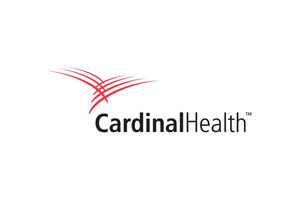DUBLIN, Ohio, May 8, 2019 /PRNewswire/ -- Clinicians report spending more than twice the amount of time they would like to on supply chain-related tasks, and as a result have less time with patients and increased stress levels, according to the fourth annual Cardinal Health Hospital Supply Chain Survey. Additionally, 25 percent of those managing supply chains – along with 20 percent of clinicians – say that supply chain tasks "stress them out."
"The burden on clinicians of non value-added supply chain tasks creates a host of other issues in health care organizations. Most critically, it pulls clinical focus away from patients and adds to existing stress on the staff when retention and satisfaction is already a concern," said Lori Walker, vice president of Distribution Services at Cardinal Health. "Unfortunately, many doctors and nurses feel that solving these problems is outside of their span of control, which further affects job satisfaction."
Clinician frustration around supply chain issues is common.
The survey, which included hospital supply chain decision makers as well as clinicians, showed two out of three (67 percent) respondents have observed clinical staff frustration caused by supply-related issues, including:
- Missing supplies – three quarters (74 percent) of frontline providers say looking for supplies that should be at hand (but aren't) has the most negative impact on their workplace productivity, and even more department managers (84 percent) say the same;
- Manual tasks – 49 percent of frontline providers report manually counting and tracking supplies with nearly half (46 percent) of frontline providers saying this has a "very" or "somewhat" negative impact on their workplace productivity;
- Utilization – 70 percent of respondents noted wasting and overutilization of supplies as a significant or somewhat significant problem within the organization, with a higher percentage among department managers (81 percent).
Medical and surgical distributors can make a difference in organizational success.
An overwhelming 94 percent of those surveyed recognize supply chain management's strong correlation to financial success, but expectations of medical and surgical distributors are increasing. Respondents are looking to their distributor to play a bigger role in ensuring the organization's seamless operational performance, with 88 percent saying this capability is "very" or "somewhat" important. This is especially true among those closest to the supply chain process, with 71 percent of supply chain personnel describing this as "very" important.
Another important factor according to the majority of respondents (85 percent) is that they prefer to work with a distributor that makes recommendations for their organization that puts patient care front and center.
"There are solutions for improving supply chain operations, including automation, workflow simplification and storeroom optimization," said Walker. "Cardinal Health offers a portfolio of products and services that help to reduce waste, increase efficiency and workflow, and, most importantly, unburdens clinicians of supply chain tasks and gets them back to spending time with their patients."
The Cardinal Health Hospital Supply Chain Survey, fielded by SERMO, provides a comprehensive look at health care organization supply chain perceptions from frontline clinicians and hospital supply chain decision makers. For more information about this survey or Cardinal Health's portfolio of products and services, please visit cardinalhealth.com/supplychain.
About the Cardinal Health Hospital Supply Chain Survey
The survey was fielded January 16-28, 2019, using an online methodology. Samples drawn from SERMO's online panel of health care providers included 306 total respondents from various health care organizations working in the following roles: "frontline" clinicians, including surgeons, nurses and physicians (n=81); hospital administrators, including hospital management, vice presidents, senior directors, "C-suite" personnel, and equivalent titles (n=75); supply chain decision makers, including vice presidents, supply chain managers, nurse managers, operating room (OR) nurses and purchasing agents (n=75); and procedural department management personnel, including chief medical directors, catheter lab managers and OR/theater managers (n=75).
About Cardinal Health
Cardinal Health, Inc. is a global, integrated healthcare services and products company, providing customized solutions for hospitals, healthcare systems, pharmacies, ambulatory surgery centers, clinical laboratories and physician offices worldwide. The company provides clinically proven medical products, pharmaceuticals and cost-effective solutions that enhance supply chain efficiency from hospital to home. To help combat prescription drug abuse, the company and its education partners created Generation Rx, a national drug education and awareness program. Backed by nearly 100 years of experience, with approximately 50,000 employees in nearly 46 countries, Cardinal Health ranks #14 on the Fortune 500. For more information, visit cardinalhealth.com, follow @CardinalHealth on Twitter, @cardinalhealthwings on Facebook and connect on LinkedIn at linkedin.com/ company/cardinal-health.
SOURCE Cardinal Health

Related Links
WANT YOUR COMPANY'S NEWS FEATURED ON PRNEWSWIRE.COM?
Newsrooms &
Influencers
Digital Media
Outlets
Journalists
Opted In





Share this article